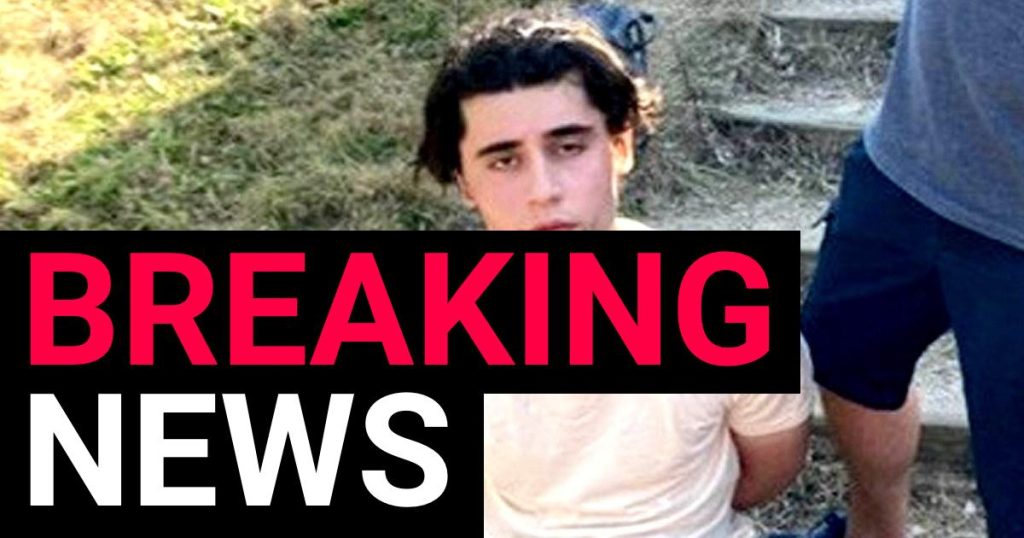Daniel Khalife’s Espionage, Escape, and Sentencing: A Detailed Account
Daniel Khalife, a 23-year-old former British Army soldier, has been sentenced to 14 years and three months in prison for espionage and escaping from custody. His actions, described by the sentencing judge as driven by a "selfish desire to show off," exposed military personnel to significant risk and caused substantial disruption. Khalife’s offenses, spanning from collecting sensitive information for Iran to his audacious escape from HMP Wandsworth, paint a picture of a young man driven by a misguided sense of ambition and a penchant for attention-seeking behavior. The court proceedings revealed the depth of his betrayal, the extent of the security breach, and the national impact of his escape.
Khalife’s spying activities commenced during his service in the Royal Corps of Signals. Exploiting his position, he gathered classified information, including the identities of serving soldiers, some of whom belonged to special forces units. This sensitive data was then passed on to Iranian agents, potentially compromising the safety and security of military personnel. Khalife’s motivations, as revealed in court, were not rooted in ideological conviction but rather a desire to impress and advance his career through unconventional means. His actions, far from showcasing brilliance or cunning, were characterized by immaturity and a lack of understanding of the gravity of his crimes. He received cash payments for the information he provided and expressed his intention to remain in the military for over 25 years to continue his illicit activities.
The most dramatic chapter in Khalife’s saga unfolded in September 2023 when he escaped from HMP Wandsworth, a Category B prison in southwest London. His method of escape, clinging to the underside of a food delivery truck, was as audacious as it was simple. The ensuing manhunt gripped the nation, grounding flights and mobilizing over 150 police officers, incurring over £250,000 in overtime costs. The widespread disruption and public concern underscored the seriousness of his escape. Khalife’s capture days later on a canal towpath brought an end to the nationwide search, but not before he had further demonstrated his disregard for the consequences of his actions. Upon arrest, his flippant remark about holidaymakers’ disrupted travel plans highlighted his lack of remorse and his continued focus on the attention he received.
During his trial, Khalife’s defense portrayed his actions as a clumsy attempt at becoming a double agent, a plot more akin to a cartoonish escapade than a sophisticated espionage operation. He claimed his intention was to infiltrate Iranian intelligence networks and provide valuable information to British security services. This narrative, however, was ultimately rejected by the jury, who found him guilty of breaching the Official Secrets Act and the Terrorism Act. The prosecution presented a compelling case, highlighting Khalife’s deliberate collection of classified material and his communication with Iranian agents. His claims of wanting to help UK intelligence agencies were dismissed as a cynical attempt to cover his tracks. The bomb hoax he staged at his barracks, while ultimately unsuccessful, further demonstrated his willingness to engage in reckless and potentially dangerous behavior.
The sentencing judge, Mrs. Justice Cheema-Grubb, delivered a scathing assessment of Khalife’s character and conduct. She condemned his immaturity, lack of wisdom, and dangerous folly in engaging with an enemy state. The judge emphasized the gravity of his actions, highlighting the potential harm to military personnel and national security. The 14-year sentence reflects the seriousness of the offenses and seeks to deter others from engaging in similar acts of betrayal. Khalife’s case serves as a stark reminder of the potential consequences of misplaced ambition, naivety, and a disregard for the law.
Khalife’s story, from his initial recruitment into the army to his eventual conviction and sentencing, is a complex tapestry of ambition, deceit, and ultimately, self-destruction. His journey, marked by a series of poor decisions and ultimately culminating in criminal activity, underscores the importance of responsible behavior and the severe consequences that can follow from acts of betrayal and disregard for the law. His escape attempt, while ultimately unsuccessful, further highlighted his immaturity and lack of foresight. The substantial resources expended in his recapture reflect the significant disruption his actions caused. His sentencing brings a measure of closure to this chapter, but the broader implications of his actions, particularly the potential compromise of national security, continue to resonate.
The case of Daniel Khalife raises pertinent questions about the vulnerabilities within security systems and the potential for individuals to exploit their positions for personal gain. It also highlights the importance of thorough vetting processes and ongoing monitoring to identify and mitigate potential security risks. Khalife’s actions, driven by a combination of naivety and a desire for recognition, ultimately resulted in a lengthy prison sentence and a tarnished reputation. His story serves as a cautionary tale about the seductive nature of illicit activities and the devastating consequences that can follow.


